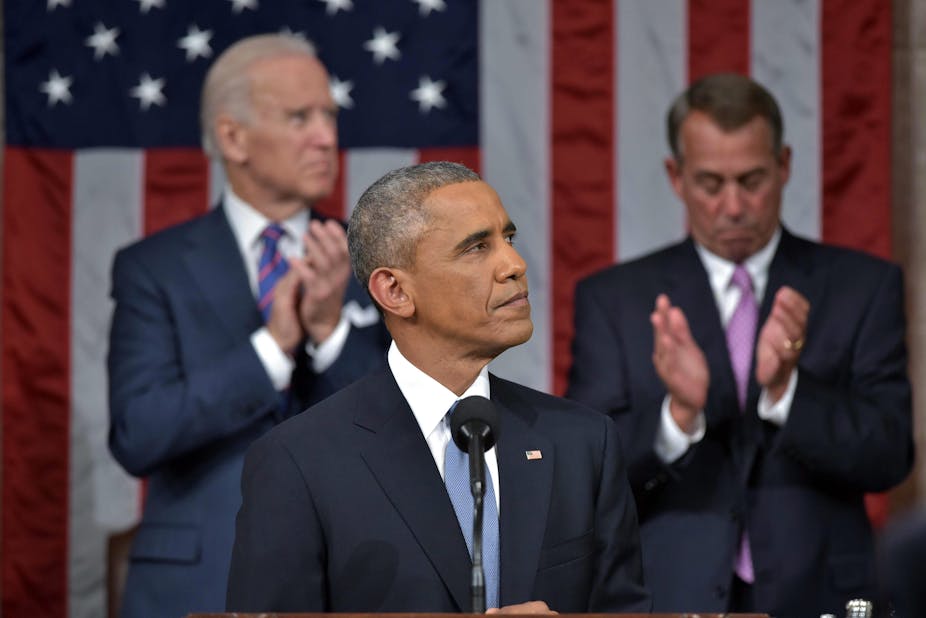President Barack Obama has pointed to an improving economy and the need for a taxation system that shares the benefits in an agenda-setting State of the Union challenge to the Republican congressional majority.
The State of the Union speech serves as a rhetorical tool. It is when the US president acknowledges the start of the new legislative session in high pageantry, elaborate ceremony, staunch tradition and endless pomp.
Historically, the address contains three elements, including a public meditation on values, an assessment of current affairs and a series of policy recommendations. Invariably, there are references to partisanship and the past, along with optimism about the future. This address was no different.
Ideally, the State of the Union provides a platform for the president to provide an upbeat rendition of the nation’s well-being, uninterrupted by partisan naysaying. Obama’s approval ratings ahead of the address were a respectable 46% – higher than any time in the past 18 months.
This boost is particularly linked to perceived economic improvement. Obama noted that the US economy is creating jobs at its fastest pace since 1999, and that the unemployment rate has recovered to better than pre-global financial crisis levels. This could result in a further rise in the polls.
Last hurrah
The last quarter of any two-term presidency is referred to as the lame duck session. However, this period does not necessarily equate to presidential weakness, as Obama appears determined to demonstrate.
There is a certain liberation in no longer having to concern oneself with re-election, and the self-styled herald of “hope and change” has come a long way from his naive presidential debut in 2008. Over the past six years, Obama has slowly built up his bullish resistance to the granite wall of Republican opposition.
There is no doubt that GOP lawmakers will go to great lengths to avoid advancing the presidential agenda. Their anger was especially piqued by Obama’s recent executive action protecting five million illegal workers from deportation.
Obama is demonstrating a determination to push his agenda as far and as fast as he can in the time he has left, by any means necessary. His address therefore included talk of Cuba, and a promise to veto any legislation that would “put the security of families at risk”, on health care and immigration.

The re-establishment of relations with Cuba has been a major talking point, and not everyone is pleased. Clearly, Obama will be mindful of what now looks like an inevitable Hillary Clinton candidacy for 2016, and will assist in paving the way for her ascent. The Cuba initiative is a political gift to his Democrat successor, as the crucial Latino vote, which makes up approximately 12% of the electorate, will no doubt respond positively.
Other agenda items include tax reform, promoting paid leave for working parents and making community college free. These may not be the most headline-grabbing topics, but developments on these fronts would go some way to shoring up Obama’s liberal credentials.
Obama is now entering the period when the notion of legacy becomes increasingly pertinent. It won’t be practical to play out his final two years on the back of executive actions alone, but Obama has made it clear that hostile congressional opposition to his plans won’t ruin his parting plans. And with congressional approval ratings at a dismal 16%, the legislative branch is not due to outshine the president any time soon.
Unlike so many of his predecessors, Obama has had the luxury, and the credit, of not being mired in scandal during his second term in office. Sage counsel was recently offered from a man who knows something about making it through those final two years facing a hostile congressional majority. Former president Bill Clinton advised Obama to “have fun” and “cut deals”.
Obama has everything to gain by sailing through this final stretch buoyed by his enhanced political skill and with the wind of public opinion at his back.

